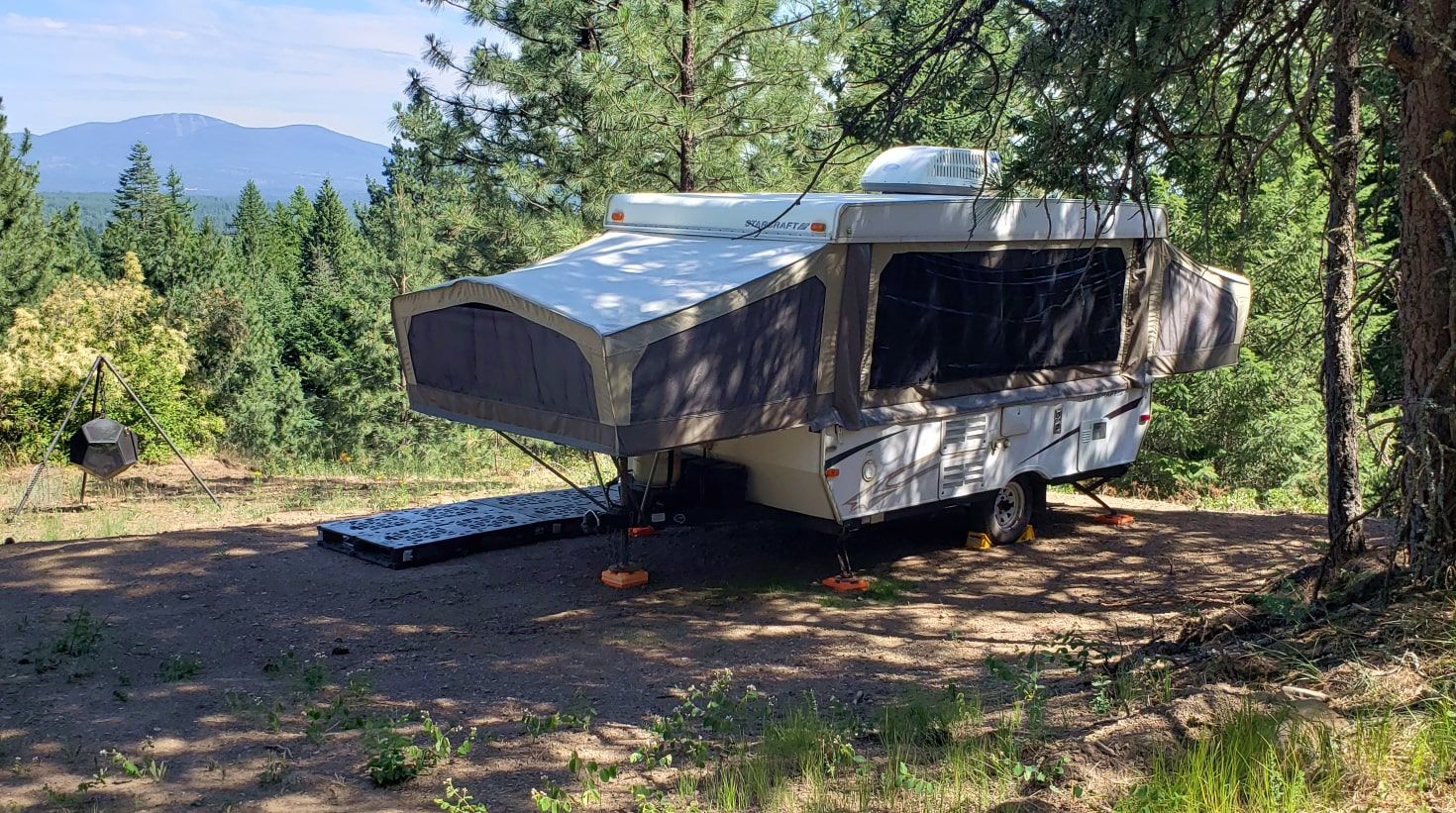
Are you looking for an easy and affordable way to go camping? Then, a pop-up camper rental might be the perfect option for you! These small trailers are inexpensive, easy to tow and provide all the comforts of home while experiencing the great outdoors.
In this guide, we will discuss everything you need to know before renting a pop-up camper. We'll compare pop-ups with other types of RVs, the pros and cons, discuss pricing, and give tips on making your rental experience as smooth as possible.
Let's get started!
What is a pop-up tent camper?
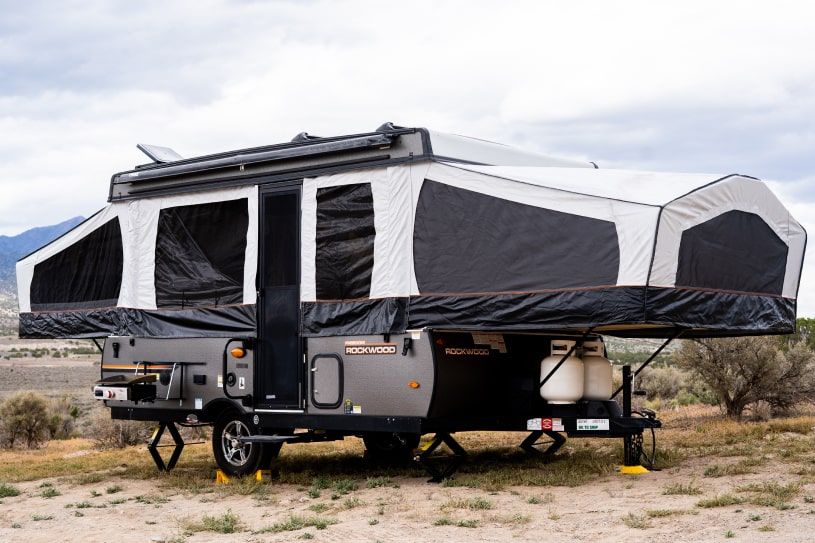
A pop-up tent camper is a small trailer that features a collapsible top that folds down for easy towing. These trailers are typically lighter than other types of towable RVs, making them easy to pull for small SUVs, vans, and even some cars that have a hitch mounted under the vehicle.
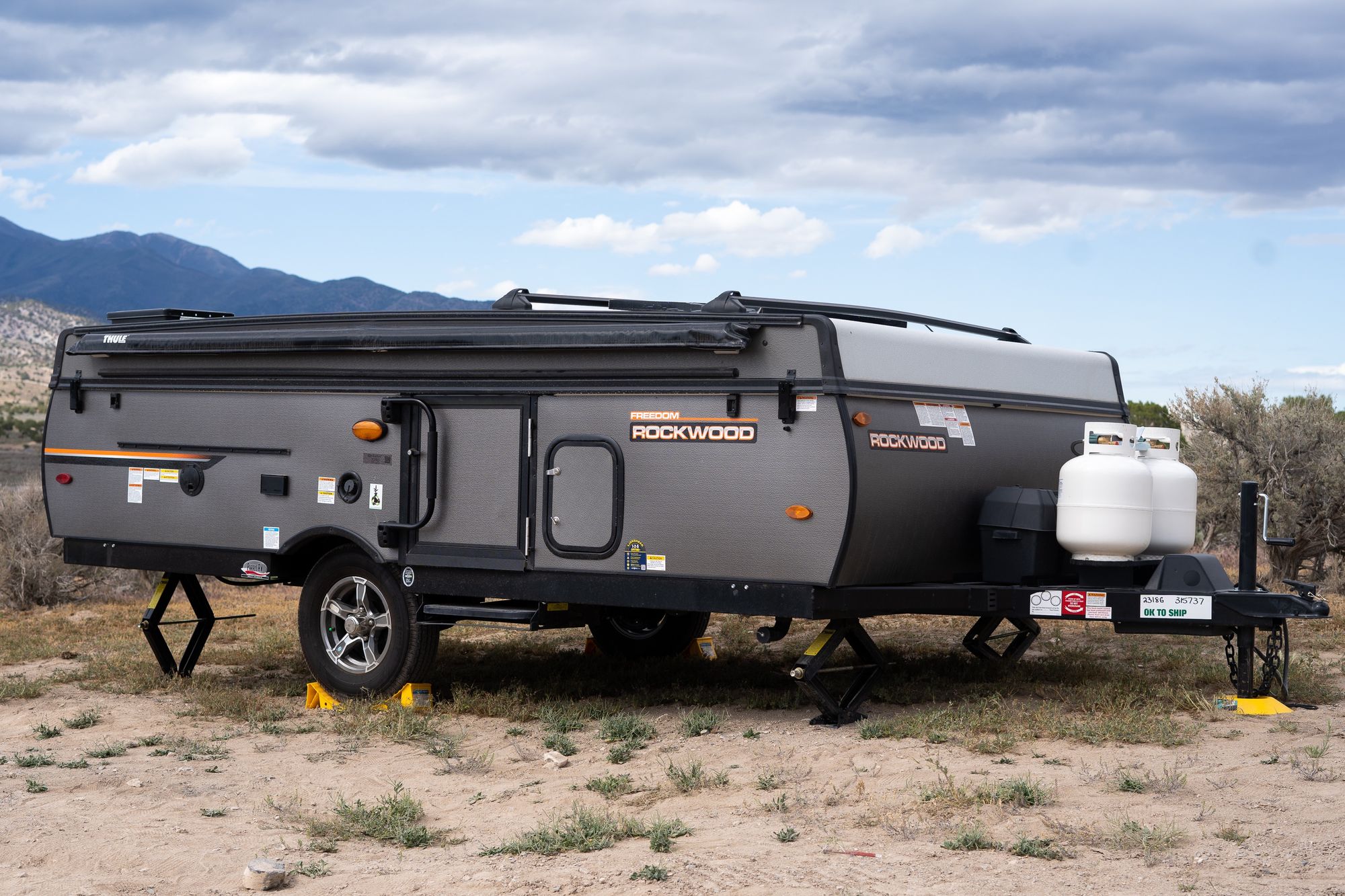
The collapsible top is typically made with soft materials like a tent or rigid panels that fold up and down. While pop-up campers can seem small when being towed, they can extend to create large living spaces and sleep up to six people. Some newer models even offer inflatable tops for quick and convenient setup.
Pop-up camper pros
- Very affordable. Most pop-up campers can be rented for $50 to $100 per night. Pop-ups are arguably the least expensive way to go RV camping considering how much square footage you get for the price.
- Lightweight and easy to tow. The average weight for a pop-up camper is around 2,000 pounds (907 kilograms). While most pop-up campers weigh between 1,500 pounds (680 kilograms) and 3,000 pounds (1360 kilograms), most standard tow vehicles can handle pop-up campers. Small SUVs, like the Ford Escape, can tow up to 3,500 pounds (1,500 kilograms). Even small sedans, like a Mazda 3 can tow up to 2,600 pounds (1,180 kilograms), which is sufficient for small to midsize pop-up campers.
- Campground friendly. Because of their small size, pop-up campers can be taken to most campsites, including campgrounds within national, state, and provincial parks. Few exceptions apply.
- Surprising storage space. Despite the small size, pop-up campers offer lots of storage space for all your camping essentials. Most pop-up camper owners come up with creative ways to maximize the space within cabinets, benches, and the main living space. Some pop-ups even include a front storage box and a bike rack.
- Various sizes and amenities. While all pop-up campers offer areas to sleep and eat, larger, more luxurious pop-up campers can offer full kitchens and bathrooms with a toilet and shower. Bottom line, there's a pop-up for every camping style.
- Low insurance cost. Whether you're looking to rent or buy a pop-up camper, it's reassuring to know that these trailers don't cost much to insure because they don't have an engine or expensive parts.
Pop-up camper cons
- Setup and takedown times. Just like pitching a tent, pop-up campers take time to set up. Experienced users will take 15 to 20 minutes to set up their campers. However, if it's your first time, it's best to allow extra time when getting to your campsite. If you rent your pop-up camper through RVezy, the owner of the pop-up will provide you with detailed instructions on the setup. Here's an example of how to set up a pop-up camper.
Did you know that on RVezy, you can get your pop-up camper delivered and set up by the host?
- Not great in bad weather. Pop-up campers aren't great when the weather is bad because of the soft materials used to manufacture them. Whether you're facing extreme heat, cold, rain, wind, or any other type of harsh weather conditions, pop-up campers perform only slightly better than traditional tents.
- Break-ins. While pop-up campers are much safer than tents, they are still considered vulnerable to break-ins. Whether you're camping in bear country or a bad part of town, it's important to be aware of what food or valuables you leave inside the RV as they can attract an unwanted crowd.
- Lack of privacy. With almost no soundproofing and limited privacy, pop-up campers might not be the best option if you're staying at a noisy campground or looking for dedicated spaces within your RV rental.
How much does it cost to rent a pop-up camper?
You can rent a pop-up camper for as little as $50 per night; however, the average cost of a pop-up camper rental is between $75 and $100 per night. For the most part, you can rent a pop-up camper for a long weekend (3-4 nights) for about $500 including, insurance protection, fees, and taxes.
When comparing prices, it's important to find out which amenities come with your rental. Some luxurious pop-up campers come fully equipped with a kitchen, bathroom, and sleeping areas, while others may just have a basic sleeping area and dining table.
You can also expect to pay more for pop-up rentals during peak camping season (May through September). However, if you're flexible with your dates, you can often find discounts for rentals outside of peak season.
Looking for more information about RV rental prices? Here's a cost breakdown by RV type.
Pop-up camper rental examples
Here are just a few examples of pop-up campers you can rent on RVezy. For available pop-up camper rentals in your area, click here.
Forest River Rockwood Tent Trailer
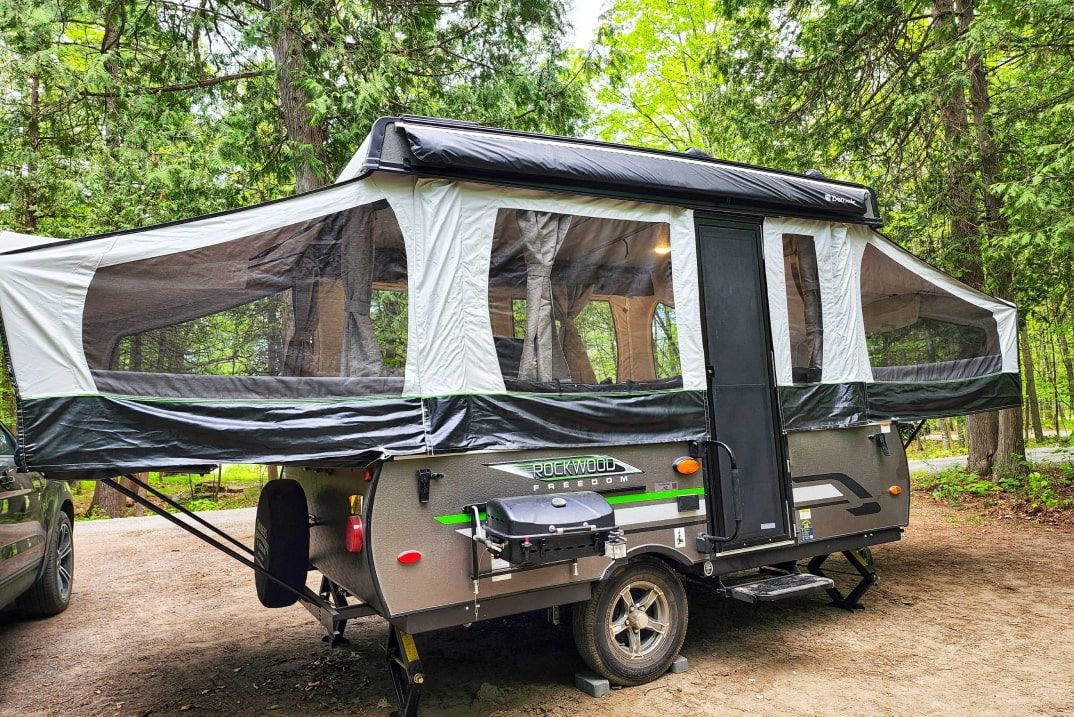
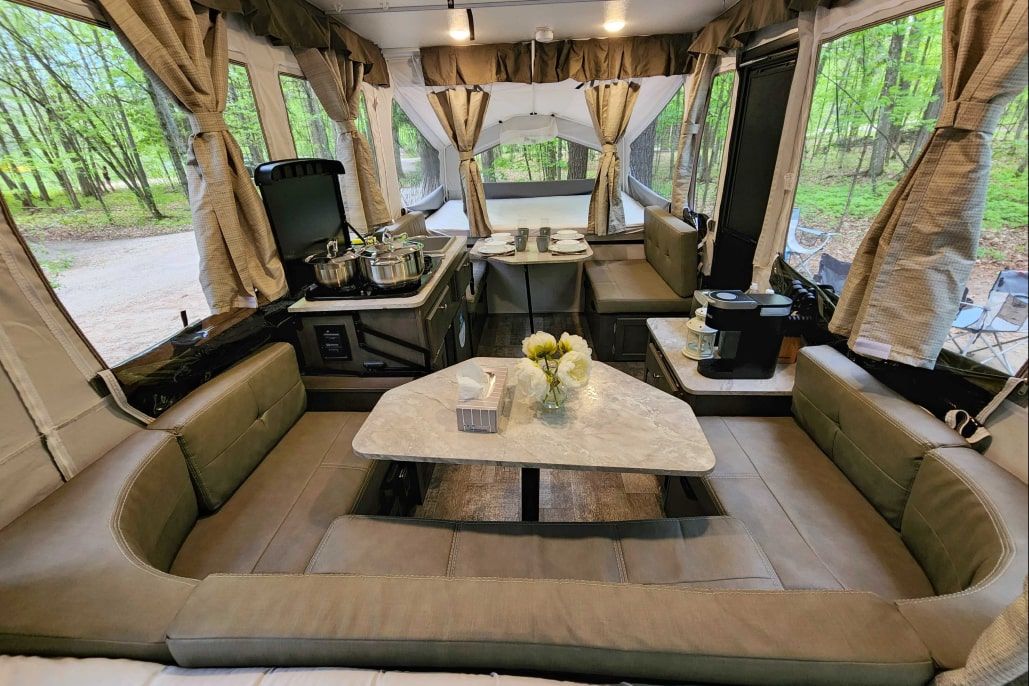
Brand New Luxurious Pop-up A-Frame RV — 2021 Rockwood A214HW
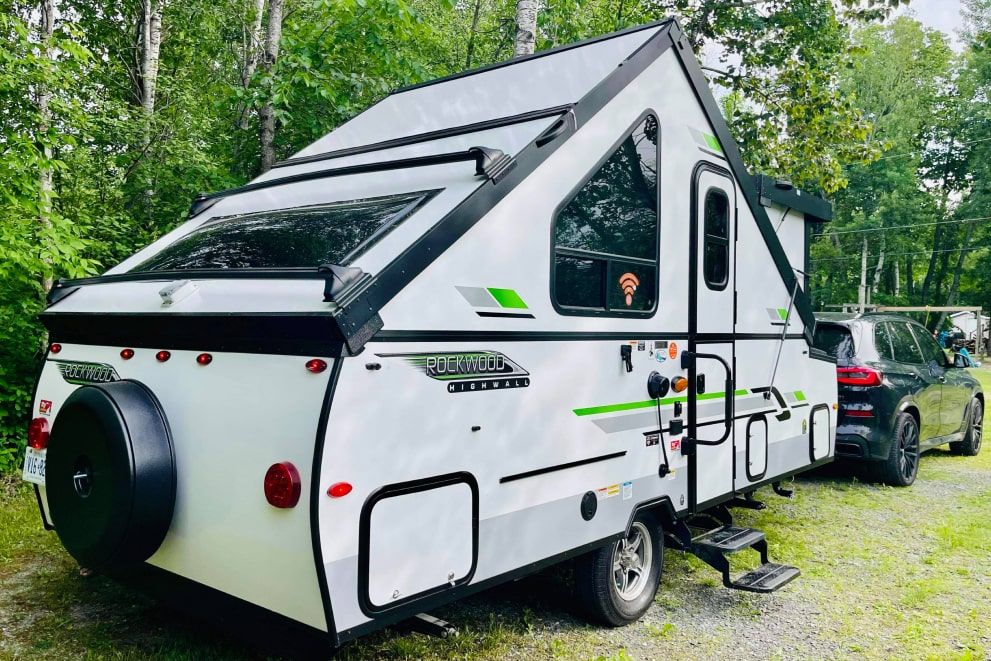
Jayco Baja Sport Tent Trailer
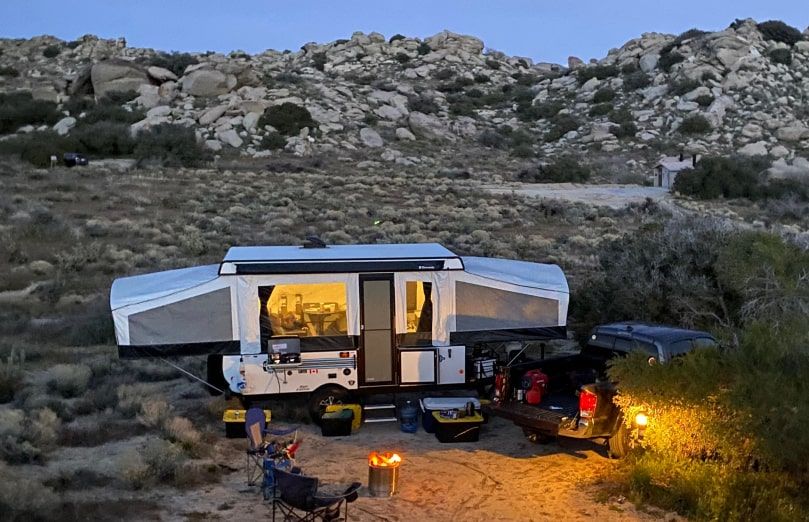
Jayco — Jay Series Sport
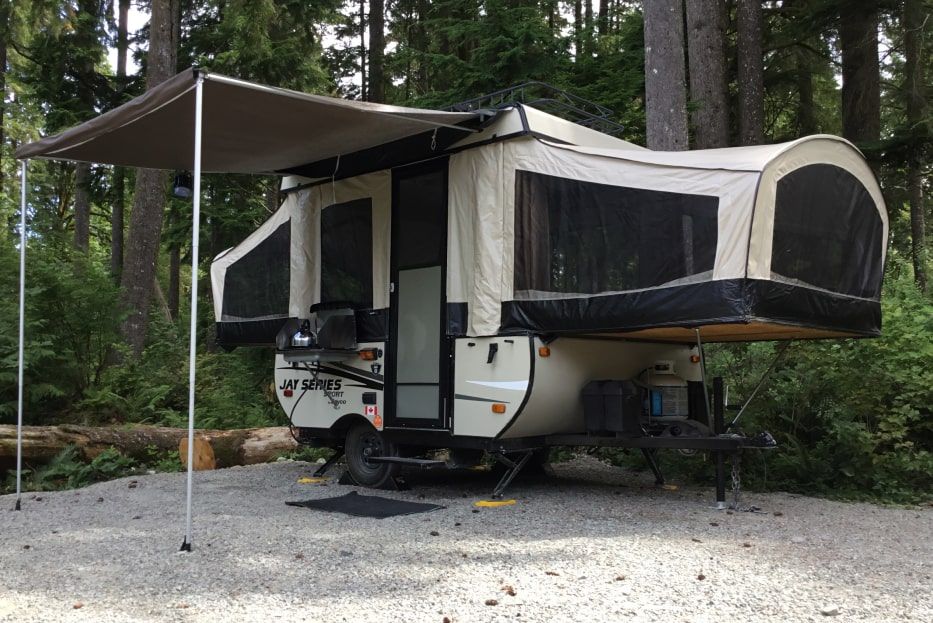
Pop-up campers versus other types of trailers
Pop-up campers are extremely cost-efficient and versatile, but they aren't for everyone or every trip. Here's a quick overview of the other towable RVs and when you should consider them. We've ordered them from largest to smallest.
Interested in learning more about the different RV types? Check out The Best RVs For First-Time Owners & Renters
Fifth wheels
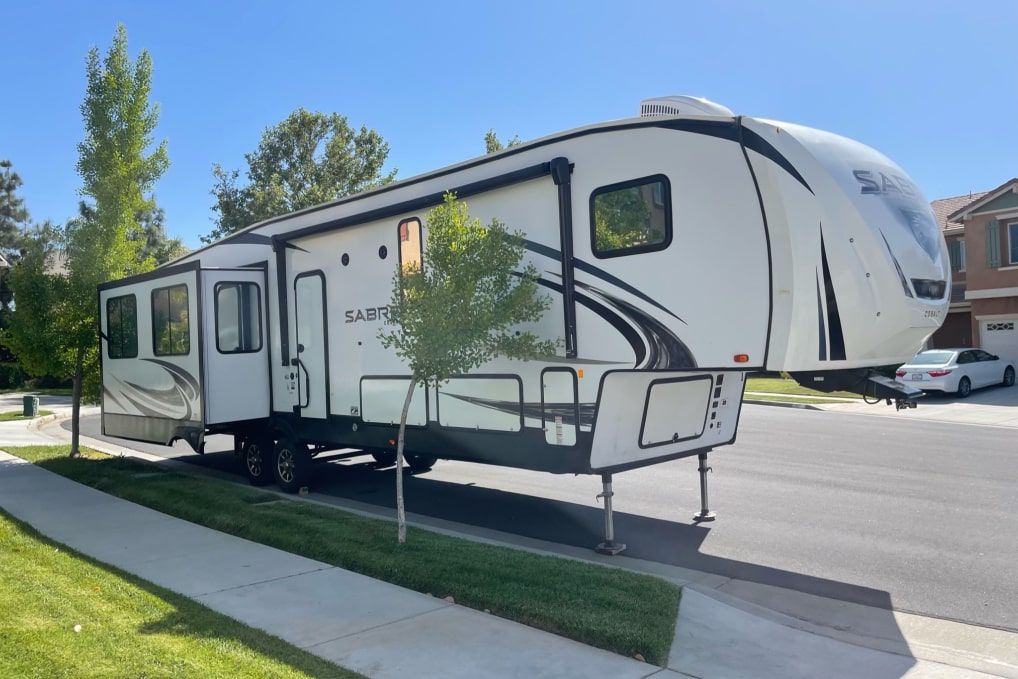
Best for campers looking for extended stays with larger groups. Offers all the amenities you'd find at home. It can be delivered and set up at your campsite.
- Size: very large.
- Sleeps: ideal for 4 to 8 people.
- Average weight: 10,000 to 15,000 pounds.
- Tow requirements: heavy-duty truck with a hitch in the back.
- Price: $125 to $250 a night.
Toy haulers
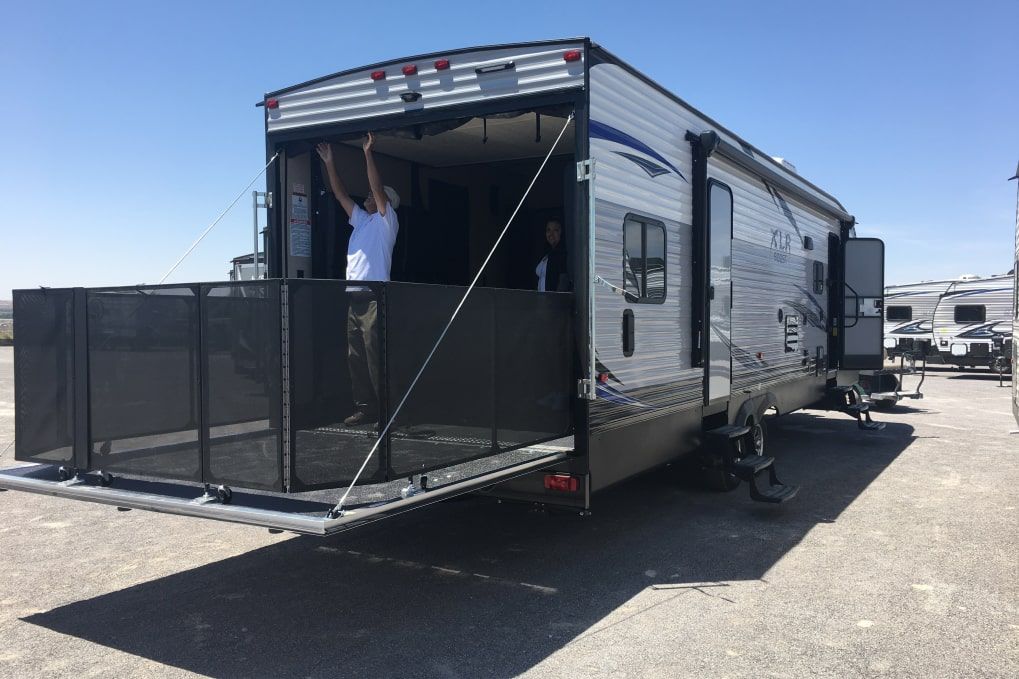
Best for campers looking to bring along large equipment such as motorcycles, ATVs, and more.
- Size: medium to large.
- Sleeps: ideal for 3 to 5 people.
- Average weight: 7,000 to 12,000 pounds.
- Tow requirements: heavy-duty truck.
- Price: $100 to $200 a night.
Travel trailers
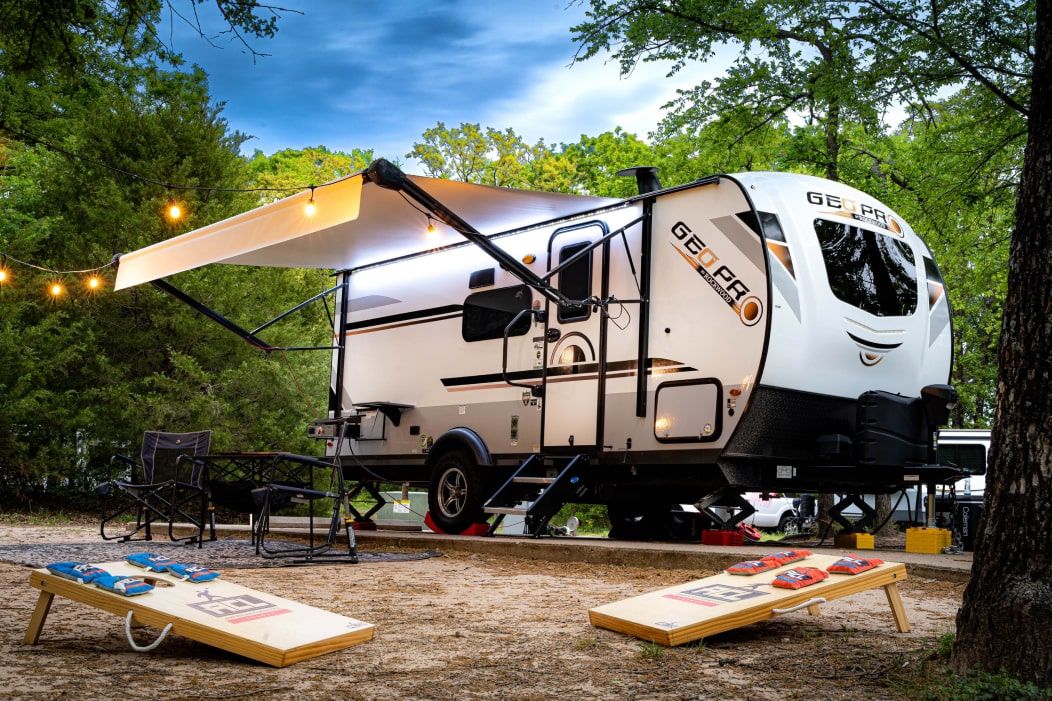
Best for campers looking for added comfort, privacy, and amenities at a slightly higher price.
- Size: medium to large.
- Sleeps: ideal for 3 to 5 people.
- Average weight: 4,000 to 7,500 pounds.
- Tow requirements: truck or large SUV.
- Price: $100 to $200 a night.
Micro trailers
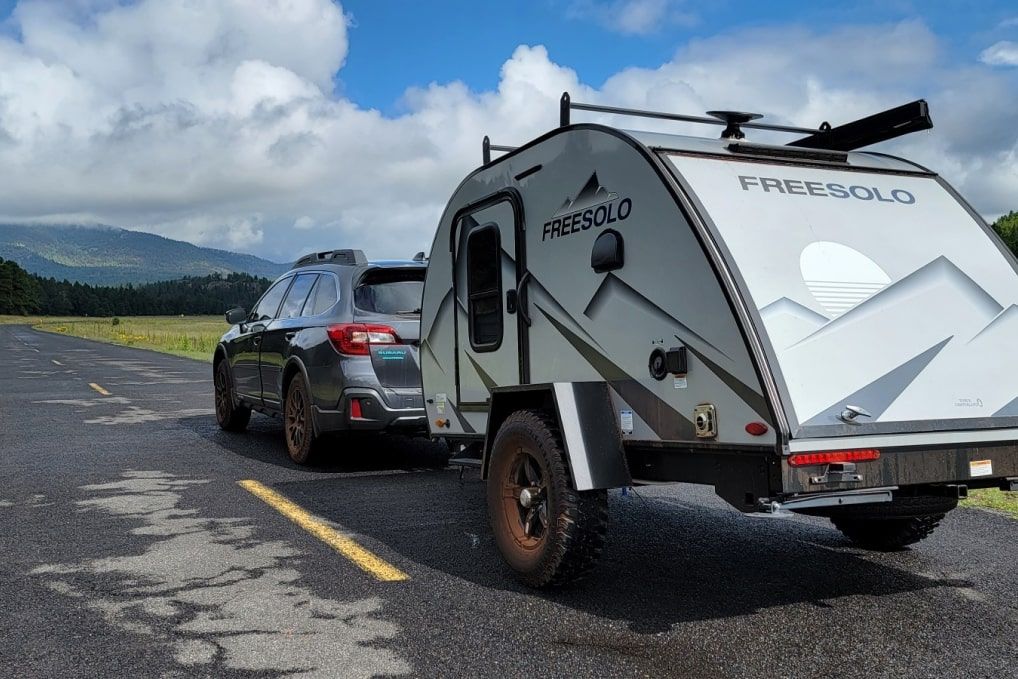
Best for campers looking for a comfortable place to sleep with basic amenities and something incredibly easy to set up and tow.
- Size: medium to large.
- Sleeps: ideal for 1 to 2 people.
- Average weight: 1,200 to 2,000 pounds.
- Tow requirements: car, van, or small SUV.
- Price: $50 to $100 per night.
Final thoughts
Pop-up campers are amazing RVs that pack a ton of value in a small, easy-to-tow package. For travelers looking to get into RVing for the first time, they are a great option to look at. This is especially true if you've previously gone tent camping as you will be familiar with the concept of setting up and taking down the tent at your campsite.
Finally, if you're looking to rent a pop-up, it's important to note that they are much more popular in colder climates like Canada and the northern parts of the United States. Although most pop-ups come with A/C units, RVers in the southern states generally prefer buying and renting other RV types that provide better climate control for warm nights and stormy weather.
Looking to book your RV trip? Find the perfect RV rental near you.